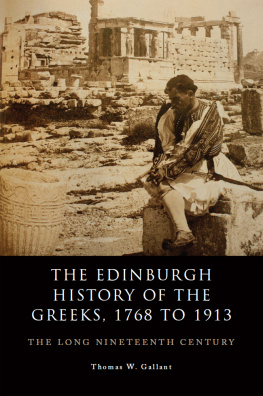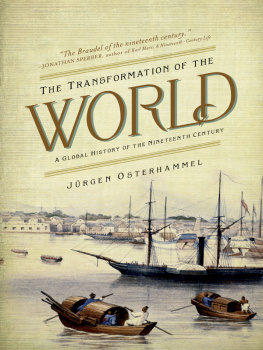The Whole World in a Book

Oxford University Press is a department of the University of Oxford. It furthers the Universitys objective of excellence in research, scholarship, and education by publishing worldwide. Oxford is a registered trade mark of Oxford University Press in the UK and certain other countries.
Published in the United States of America by Oxford University Press
198 Madison Avenue, New York, NY 10016, United States of America.
Oxford University Press 2020
All rights reserved. No part of this publication may be reproduced, stored in a retrieval system, or transmitted, in any form or by any means, without the prior permission in writing of Oxford University Press, or as expressly permitted by law, by license, or under terms agreed with the appropriate reproduction rights organization. Inquiries concerning reproduction outside the scope of the above should be sent to the Rights Department, Oxford University Press, at the address above.
You must not circulate this work in any other form and you must impose this same condition on any acquirer.
CIP data is on file at the Library of Congress
ISBN 9780190913199
eISBN 9780190913212
Contents
Sarah Ogilvie and Gabriella Safran
John Considine
D. Brian Kim
Michael Adams
Sarah Ogilvie
Volker Harm
Anne Dykstra
Susan Rennie
Wim Remysen and Nadine Vincent
Edward Finegan
Peter Sokolowski
Ilya Vinitsky
Mrten Sderblom Saarela
Walter N. Hakala
Lindsay Rose Russell
Gabriella Safran
Jorge Bidarra and Tania Aparecida Martins
This volume is the product of a call for papers on nineteenth-century lexicography and a follow-up two-day workshop held at Stanford University in April 2018. We thank the contributors to our conference and volume for the warmth and infectious energy that they brought to their writing and discussion, the openness with which they worked to improve their chapters, and the willingness with which they responded to the draconian deadline we gave them for revisions. We are grateful to the many units at Stanford that provided generous funding and support for this project: Stanford University Libraries; the Dean of Humanities and Sciences; the Dean of Research, the Center for Russian, East European, and Eurasian Studies; the Department of Slavic Languages and Literatures; the Department of English; the Department of French and Italian; the Department of Comparative Literature; the Department of Linguistics; the Program in Science, Technology and Society; and the Stanford Center for Advanced Studies in the Behavioral Sciences. We are grateful to the Stanford University Libraries, especially the University Librarian, Michael Keller, for generously hosting our workshop.
Bringing this volume to publication would not have been possible without the expert editing of Stanford doctoral student, Alice Underwood, who immediately shared our passion and vision for the project. Alice was the best possible interlocutor and went far beyond the usual tasks of a copy-editor. She engaged with the complexities of the books argument and style, translated especially difficult citations from Russian, created the index, and worked to the very end of the project ensuring that the books publicity materials best reflected its content. In addition, we acknowledge the support and expertise of John Mustain, Stanford Curator of Rare Books, who organized a splendid dictionary exhibit to coincide with the workshop. We appreciate the administrative expertise of Maria Guttenbeil, the reliable and cheerful correspondence and website work of Michael Widner, Anand Dibble, and the last-minute help of Brett Winestock. Hallie Stebbins, Hannah Doyle, Meredith Keffer, and Christina Nisha Paul guided the volume at Oxford University Press. We also thank our families for their forbearance and tolerance of the nineteenth-century lexicographers who have so thoroughly occupied our timein their typically expansive and unapologetic wayover the past few years.
Michael Adams is Provost Professor of English at Indiana University in Bloomington, where he teaches about the history and structure of English language, as well as dictionaries and lexicography. He is author of Slayer Slang: A Buffy the Vampire Slayer Lexicon and Slang: The Peoples Poetry, In Praise of Profanity; co-author (with Anne Curzan) of How English Works: A Linguistic Introduction (3rd ed.), as well as editor of Cunning passages, contrived corridors: Unexpected Essays in the History of Lexicography; and co-editor (with Anne Curzan) of Contours of English and English Language Studies. He was an assistant on the Middle English Dictionary (19868), a contributing editor on the Barnhart Dictionary Companion (19992001), consulting editor on The American Heritage Dictionary of the English Language (4th ed., 2000), and contributing editor on Word Histories and Mysteries: From Abracadabra to Zeus. He was editor of the quarterly journal American Speech. He has published more than fifty articles on literature, language, and lexicography. He served as President of the Dictionary Society of North America and editor of the Dictionaries journal from 2000 to 2005.
Jorge Bidarra is Associate Professor of Linguistics and Computer Science at the State University of West Paran, Brazil. He specializes in natural language processing with an emphasis on theoretical and computational lexicology and lexicography, extraction of information on unstructured databases, and machine learning and translation. He is currently developing digital tools to support an Automatic Bilingual Translation System for PortugueseBrazilian Sign Language (PORLIBRAS System).
John Considine teaches English at the University of Alberta, and is a consultant to the Oxford English Dictionary. His Small Dictionaries and Curiosity: Lexicography and Fieldwork in Post-Medieval Europe was published by Oxford University Press in 2017; his other publications include Dictionaries in Early Modern Europe: Lexicography and the Making of Heritage; Academy Dictionaries 16001800; and seven edited and co-edited volumes. He is editing the Cambridge World History of Lexicography and writing a new history of British lexicography from 1500 to 1800.
Anne Dykstra is an associate editor of the International Journal of Lexicography and former Director of the Fryske Academy in Leeuwarden, the Netherlands. He worked on the multi-volume scholarly Wurdboek fan de Fryske taal (19382010). In 2000, he published the FrisianEnglish Dictionary. He supervised the establishment of taalweb.frl, a website with language tools for Frisian, including a Frisian dictionary portal.
Edward Finegan is Professor Emeritus of Linguistics and Law at the University of Southern California. Among his publications are Attitudes Toward English Usage: The History of a War of Words; Sociolinguistic Perspectives on Register (co-edited with D. Biber); and Language in the USA (co-edited with J. R. Rickford). The seventh edition of his Language: Its Structure and Use appeared in 2013. In the 1990s, he and Douglas Biber compiled ARCHER (A Representative Corpus of Historical English Registers), a project now managed by participants at fourteen universities in seven countries (www.projects.alc.manchester.ac.uk/archer/). He has served on the editorial boards of

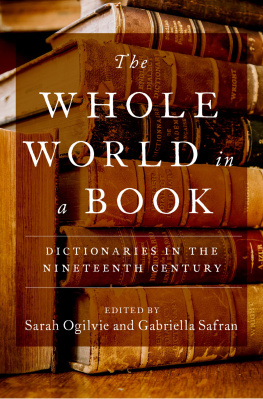
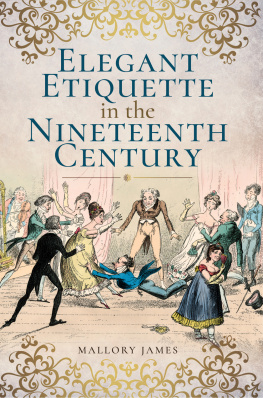
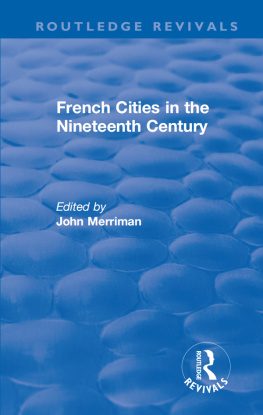


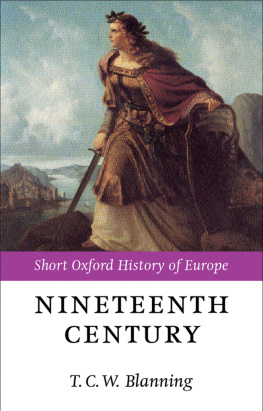
![Harvie Christopher - Nineteenth-century Britain: a very short introduction ; [in memorian Colin Matthew]](/uploads/posts/book/137651/thumbs/harvie-christopher-nineteenth-century-britain-a.jpg)
